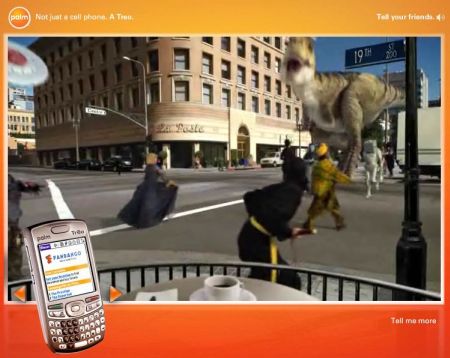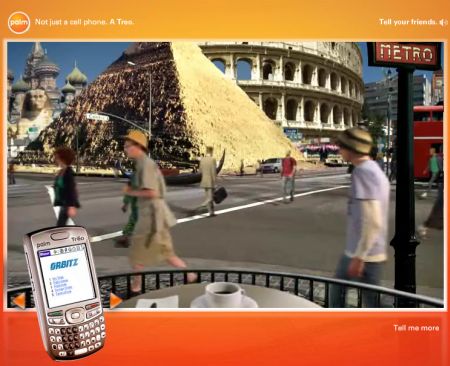von Roland Hachmann | Jan. 3, 2007 | Ad News, Blog, Digital Culture, Digital Marketing, Marketing, Online Advertising, SEO / SEA
Chris Anderson, who wrote “The Long Tail†looks at the question concerning most of the small longtail bloggers: Can you make money in the Long Tail? This post is interesting in itself, as it looks at the different participants of the long tail: producers, aggregators and consumers – and how each one might benefit from the long tail.
But: He also quotes a Valleywag blogpost in which a website owner is cited to complain about Google:
I’m beginning to have my doubts about Chris Anderson’s long tail, the proposition that cultural boutiques can make a living on the Internet. One disgruntled publisher complains she’s owed less than the minimum Google can be bothered to pay her. And, as fast as she makes money, Google lifts the threshold. [She writes:] “When I started with Adsense in late 2004/ early 2005 the minimum was $25. Just when was about to hit the $25 minimum, they raised it to $50. Now that I have $45 in my account, the minimum is $100. Granted, I have a site with very low traffic, but how many website owners are getting screwed by Google? If the long-tail theory holds out, there could be millions of dollars of unpaid Google ads.â€
I can see where this website owner is coming from. I wonder, how much money Google earns with the money they centrally collect from advertisers (I assume, there is no threshold) and invest at, well, 5%-10% on any capital market. It will only be a few dollars each, but the sum of all the blogs probably results in big money.
I guess we have no way of imagining the amount of money one can make by deploying the long tail market. But someone at Google knew and implemented the threshold of payments. Very clever.
von Roland Hachmann | Dez. 20, 2006 | Ad News, Blog, Digital Marketing, Marketing
Bob Liodice of ANA has posted his 10 trends of how marketing will be transformed in 2007:
- Consumer in control: brand marketers will radically reinvent their approaches, putting the consumer in the driver’s seat and unleashing a tsunami of interactive campaigns across all media forms.
- New agenda for agencies: Marketers will expect them to integrate strategic brand management, creativity and innovative media management – and to deliver big, game-changing ideas.
- Hail to Chief: The role of the CMO will increase and take over even more parts of the business.
- Unconventional Outreach: Marketing will become increasingly unconventional – tapping into social networking, word-of-mouth, local events and more – to break through media clutter, consumer multi-tasking and the growing cacophony of marketplace noise
- Media buying metamorphosis: The old, antiquated ways of doing business will give way to new, automated, highly transparent processes, as demonstrated by the growth of online media buying exchanges.
- Let the fighting end: Government policymakers, consumer advocacy groups and brand marketers will begin to find common ground, aligning business goals with public policy needs
- Organizational Overhaul: The marketing organization will undergo a top-to-bottom reinvention.
- Research Renewal: Marketers will insist that macro measurements (Nielsen, Arbitron, ABC), marketing mix modeling and brand performance research become far more relevant to and aligned with critical brand accountability goals.
- Blow up the Back Room: Archaic business systems and back office operations will be overhauled to lower costs, increase efficiencies and redeploy non-working dollars to hard-working, productive investments.
- Continuous Marketing Reinvention: Continuous marketing reinvention will become the mantra of marketing executives and the cornerstone philosophy for successful brand building, integrated marketing communications, marketing accountability and the marketing organization.
He will take each point and look at it in greater detail in his blog in the months to follow. Should be interesting.
(via jaffejuice)
von Roland Hachmann | Dez. 17, 2006 | Ad News, Blog, Digital Marketing, Online Advertising
I just found a funny microsite by accidentally (!) clicking on a banner. It did, however, entertain me for a few minutes, trying to explore what’s possible on that site.
The site shows a typical street crossing with people walking around in all directions.
Then, clicking on the treo options (the orange arrows), the scenery changes slightly. When selecting the Yahoo! chat option, for example, the people walking around suddenly have a yellow smiley icon instead of their head.

In this example, I selected fandango, a site for movie and theatre tickets:

Or, choosing Google Maps:

And here I chose Orbitz, a travel site:

Nice idea to demonstrate the everyday capabilities of the Treo.
von Roland Hachmann | Dez. 12, 2006 | Blog, Digital Marketing, Marketing Trends, Online Advertising
Engagement By Engagement points me to Ten Mega Trends Transforming Marketing Measurements
They sound reasonable:
- Digital Network Adoption
- Attention Erosion
- Speed of Measurement
- Democratization of data and analytics
- Observational Measurements
- Unstructured Data
- Beyond Demographics
- Customer centric measurements and planning
- Data integration comes of age
- Reevaluating relationships with whom and what we measure
More detail on the linked website, well worth a read.
(Well, apparently, it was originally posted here by the author)
von Roland Hachmann | Dez. 5, 2006 | Blog, Digital Culture
Cory Doctorow, one of the Bloggers behind Boing Boing wrote an article in Forbes about Giving It Away
I’ve been giving away my books ever since my first novel came out, and boy has it ever made me a bunch of money.
An interesting philosophy, but it does make sense somehow. In this new digital age, ebooks form the basis for word of mouth for books. In the paper age, I would borrow a book from a friend, read it and if it was good I would probably buy a version to add to my collection.
Like Joe Jaffe said in one of his podcasts, it’s like buying the T-Shirt after a good rock concert. You want to have a souvenir, something to show to your friends.
ebooks don’t replace this kind of purchase, but they even help spread the news since it is much easier to email ebooks across the globe compared to books.
That he has been successful, even in perspective of his well experienced publisher, shows this quote:
There’s no empirical way to prove that giving away books sells more books–but I’ve done this with three novels and a short story collection (and I’ll be doing it with two more novels and another collection in the next year), and my books have consistently outperformed my publisher’s expectations. Comparing their sales to the numbers provided by colleagues suggests that they perform somewhat better than other books from similar writers at similar stages in their careers.
The web does require us to rethink certain things. There is a book called Free Culture (which I haven’t fully read, I admit), in which Lawrence Lessig describes how people needed to rethink land ownership, when the first planes flew over people’s land. Up until that point, people owned the land and the air above it. With the aviation industry arriving on the horizon, this needed rethinking and changing of laws.
Nowadays, information (and things like movies and music are nothing but information, from a digital standpoint) is so easy to share and remix, that the only added value really stays with the creator of the piece of information. And the fact, that he is the only one able to recreate a piece of information (music, film, essay) that will be equally sought after.
What I mean? In future, there will be a big shakeout in the whole value chain of all parties dealing with information. Any party sitting in the value chain that doesn’t really add value, will have a hard time justifiying their relevance (other than owning rights – which means enforcing „value“ through lawsuits).
This is no bad news for the content creators. Cory earns good money by many activities surrounding his writing, as he writes in that article in Forbes, which, in turn, has apparently been paid well, too. This works out fine, since people pay to see, hear or read stuff coming directly from a content creator. And in music, bands will always be able to earn money through concerts. It’s the big fat middle that will increasingly need to justify their contribution to the value chain.





 Wo ich sonst so bin...
Wo ich sonst so bin...